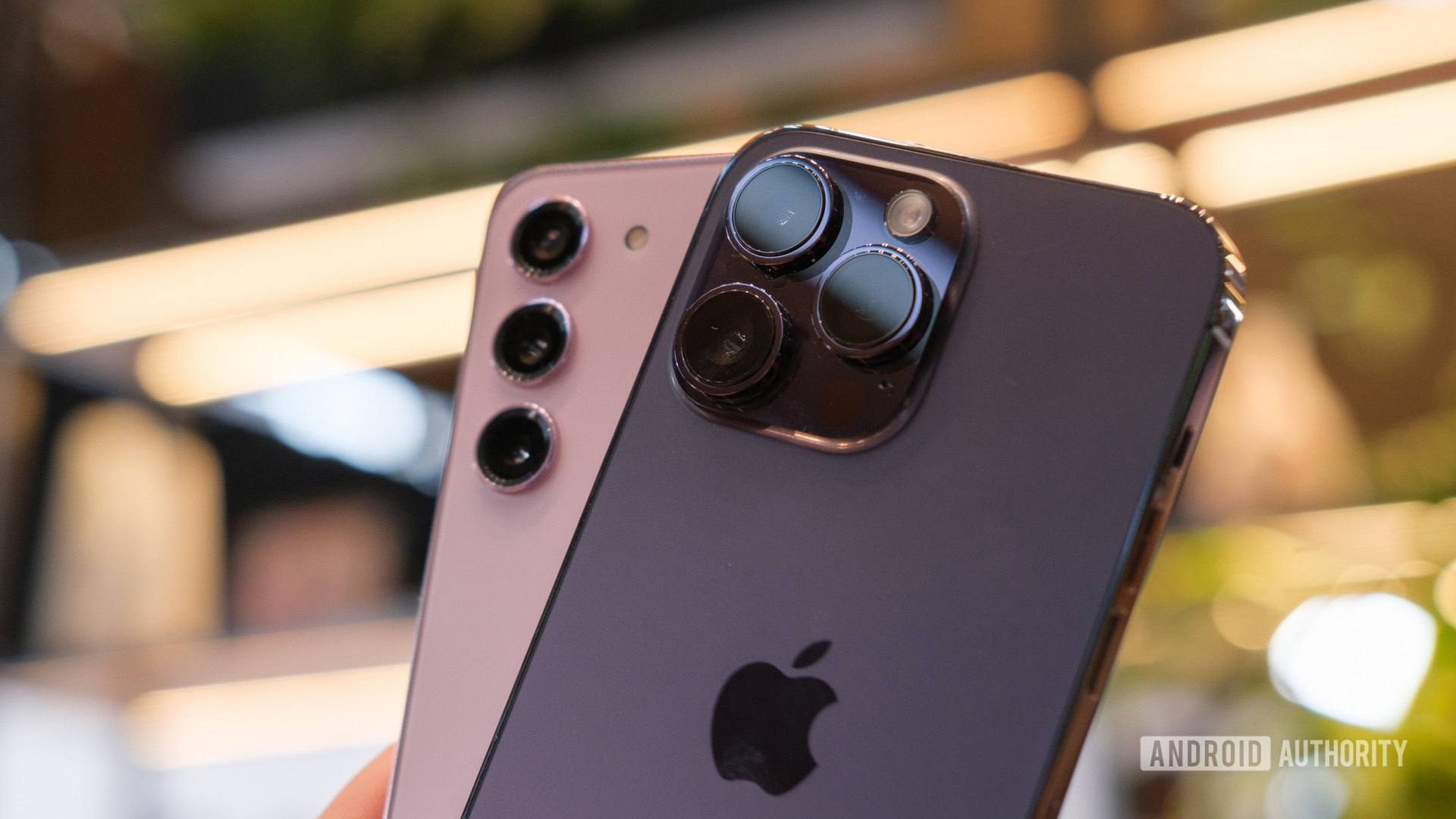Affiliate links on Android Authority may earn us a commission. Learn more.
Android is in big trouble as Gen Z increasingly prefer iPhones
Published onFebruary 21, 2023

- A new report suggests Gen Z Android adoption is shrinking at an alarming rate.
- In the US, Zoomers make up 34% of all iPhone owners, which helped Apple increase its US market share to over 50%.
- Even outside the US, however, iPhone adoption among Gen Z is increasing steadily.
The Android operating system has a big problem, and its name is Generation Z (aka Zoomers, aka people born after 1996). According to a new report from Financial Times, the Gen Z crowd increasingly prefers Apple’s iPhones over even the best Android phones, especially in the United States.
According to the report, 34% of all iPhone owners in the US belong to Generation Z. This stat destroys Samsung’s share, which is just 10%. This significant growth amongst Zoomers is part of the reason Apple increased its overall US market share from 35% in 2019 to more than 50% in 2022.
This growth amongst Zoomers comes even as the average price of an iPhone climbs to the $1,000 mark, roughly three times the average Android device globally.
While the US has seen the most impressive growth for iPhone adoption amongst Gen Z, it is not just a North American phenomenon. For example, 83% of European iPhone users under the age of 25 say they will keep using an iPhone. The percentage of Android users in that same group who say they will stick with Android is less than half that percentage.
It goes without saying that if Gen Z abandons Android, it will only be a matter of time before Android begins to die a slow death. But what can be done?
All signs point to iMessage as the reason Gen Z avoids Android
The Financial Times article is filled with stats and commentary on iMessage, Apple’s proprietary messaging app that only works properly on Apple products. Zoomers do not like that iMessage doesn’t play well with Android phones, which pushes them to either switch to an iPhone or stick with iOS at all costs.
We’ve written a lot about this phenomenon, including on how iMessage users will exclude Android users from chats. Google has started fighting this problem using marketing, billboards, YouTube videos, and more calling out Apple for not adopting RCS. This platform-agnostic system would solve the iPhone/Android disparity.
Of course, outside of the United States, the iMessage problem is less pronounced since most people use third-party messaging apps, such as WhatsApp. These apps don’t care which platform you use, so the Gen Z Android problem is less pronounced. However, the stats referenced in the previous section show that this doesn’t completely level the playing field either.
Whatever the case, Google has a huge problem on its hands. It needs to figure out ways to get Gen Z onboard with Android — or ten years from now, there might not even be an Android.